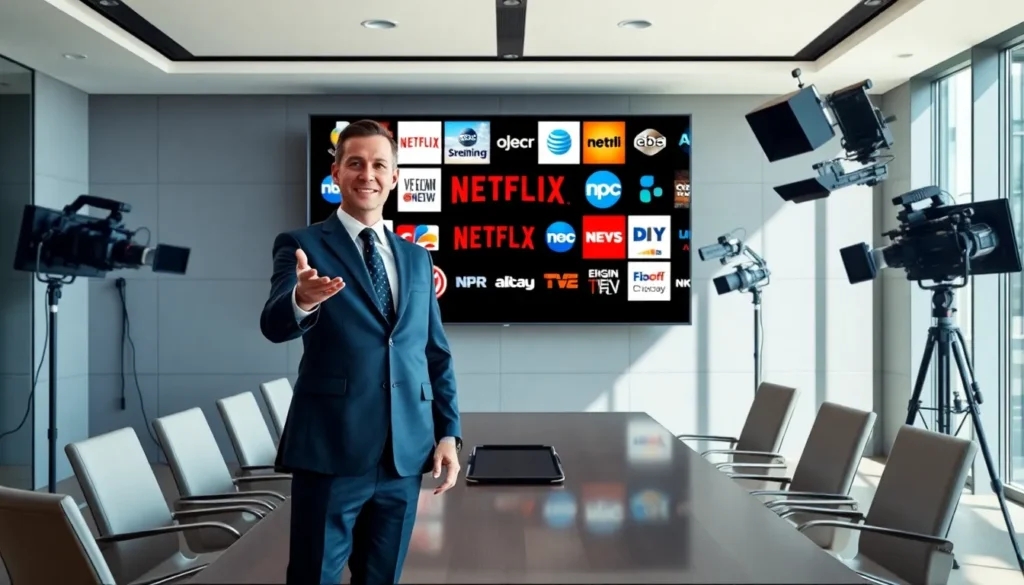Table of Contents
ToggleIn a world where tweets can stir revolutions and posts can spark downright chaos, understanding ethics in social media is not just a luxury, it’s a necessity. Think about it: in just a few taps on your screen, misinformation can spread faster than you can say ‘fake news,’ and a benign comment can escalate into a full-blown online war. This is where ethical standards come into play, guiding our digital interactions with the same principles that govern our real-world behavior. Grab your coffee: let’s jump into the quirks and complexities of social media ethics. It’s a wild ride, but one worth taking.
Understanding Social Media Ethics

The Importance of Ethical Standards
Ethical standards in social media serve as the foundation for responsible online behavior. They ensure that users not only reflect their values online but also respect the values of others. For instance, while freedom of speech reigns supreme, it doesn’t give anyone the right to bully or harass. So, having a solid grasp of what’s ethical helps maintain a respectful and safe environment where everyone feels heard and valued.
Consequences of Unethical Behavior
Unethical behavior on social media often leads to serious repercussions. For individuals, this can mean social ostracism or loss of reputation. For organizations, the stakes are even higher: brands can face backlash that tarnishes their image and customer trust. Consider the infamous cases of viral misinformation: a short-lived tweet can destroy years of reputation in the blink of an eye. In this digital domain, consequences are not just felt, they are amplified.
Key Ethical Issues in Social Media
Privacy and Data Protection
Privacy concerns have become a hot button issue in the age of social media. Users often underestimate the breadth of data collected about them, whether it’s their browsing habits or personal preferences. Organizations must handle this information with the utmost care, honoring user privacy rather than exploiting it. A breach can lead to legal consequences and a breakdown in user trust.
Misinformation and Fake News
With the click of a ‘share’ button, misinformation can spread like wildfire, leading to real-world consequences. This phenomenon has brought to light ethical questions about the responsibility of both platforms and users. Are we just consumers of content, or do we share a collective responsibility to verify information before pressing that tempting share button?
Cyberbullying and Harassment
In the digital landscape, anonymity can sometimes encourage the worst in people. Cyberbullying remains one of the most pressing ethical dilemmas in social media. What happens when words hurt more than any physical action? It’s crucial to create and enforce policies that curb such behavior, assuring users that their voices matter and their rights are protected.
Manipulating Content and Algorithm Bias
The algorithms that dictate what users see are far from neutral. These algorithms can foster echo chambers, showing users only what they want to see and not the reality of diverse viewpoints. Organizations must acknowledge the ethical implications of these biases, actively working to counteract them by diversifying the content users receive and promoting fair representation.
Best Practices for Ethical Social Media Use
Developing a Social Media Policy
Having a clear social media policy can guide both individuals and organizations in ethical behavior. This policy should outline acceptable practices, emphasizing respect, verification, and accountability. Employees should feel empowered to voice concerns and report unethical practices, knowing that they are supported by their organization.
Encouraging Responsible Sharing and Engagement
Responsibility isn’t just for content creators: it should also be expected of everyday users. Encouraging responsible sharing and engagement helps foster a culture of respect and mindfulness online. Reminding users to think twice before they click helps reduce misinformation and promotes constructive discourse.
Promoting Digital Literacy
Digital literacy is key to navigating the vast ocean of social media. It extends beyond just knowing how to post or like: it encompasses understanding content, recognizing bias, and discerning reliable sources from untrustworthy ones. Promoting digital literacy empowers users to engage thoughtfully and ethically, creating a more informed public. Education systems can play a pivotal role in this, integrating digital literacy into curricula to prepare future generations for ethical online engagement.
The Future of Ethics in Social Media
The future of ethics in social media is a topic unrivaled in complexity. As technology continues to evolve, so too will the ethical considerations tied to it. Companies must be proactive, adapting ethical frameworks that not only fit current norms but anticipate future challenges. Engaging stakeholders in discussions about ethics ensures that the evolving landscape of social media aligns with societal values, fostering trust and accountability.




